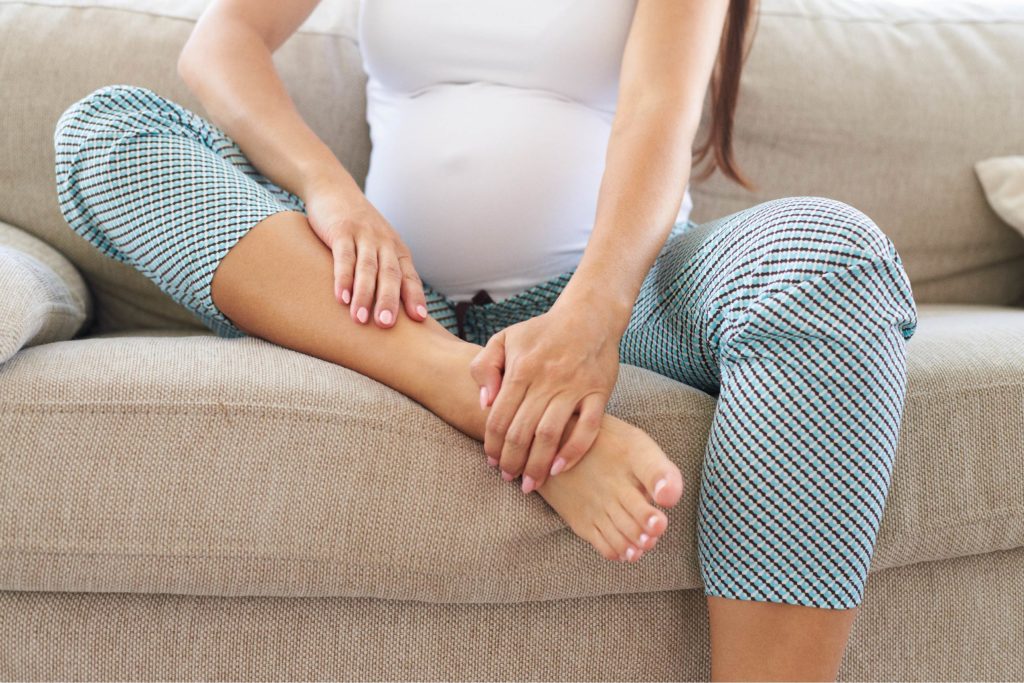
21 Jan Pregnancy & Foot Pain
Pregnancy triggers many different changes in a woman’s body, pregnancy can lead to problems that affect your feet and legs. Foot pain is one of these complaints that can often be overlooked.
Due to the natural weight gain during pregnancy, a woman’s centre of gravity is completely altered. This causes a new weight-bearing stance and added pressure to the knees and feet. Furthermore, the naturally released hormones, that prepare the body for child birth, also cause relaxation of the ligaments in the feet.
Flat Feet
Hormones increase during pregnancy. Some of these hormones help relax ligaments and other structures to allow a vaginal birth. These same hormones can also relax the ligaments in your feet, leading to flat feet (fallen arches) and over-pronation. This loosening of ligaments can also increase your shoe size during pregnancy; you may have to wear a half or whole size larger after you give birth.
Your growing womb, baby, and breasts contribute to weight gain that causes extra stress on your already compromised feet, especially your arches. It is not uncommon for pregnant women to develop heel pain (plantar fasciitis) because of the extra weight and stress on the arches.
Prevention/Treatment:
- Try to avoid standing for long periods of time and walking barefoot. Take a break when you can, and sit down and elevate your feet.
- Supportive, properly fitted shoes and arch supports will help; see a Podiatrist to discuss custom orthotics.
Toenail Changes
Your toenails tend to grow faster during pregnancy. This is usually due to increased blood volume and circulation of hormones. You are providing nutrients for your baby, the cells in your toenails can some-times be deprived of an adequate amount of nutrients, which may cause you to develop nail changes such as brittleness, ridges or grooves that go across your nail; or dark, discoloured lines/streak in the nail bed. A nail might even become loose and fall off. These nail changes will usually go away after your pregnancy.
Prevention/Treatment:
- Do not wear shoes or socks that are too tight. The extra pressure they put on the skin around the nails may cause ingrown toenails.
- Eat healthy, well-balanced meals. This will help supply the nutrients needed for you and your baby.
- Do not trim toenails too short. Swollen skin can overlap the corners of short toenails, causing ingrown toenails.
Podiatrists are able to provide a complete assessment of your feet during pregnancy and provide advice and treatment, should it be required.

Towards Wellness
Sitting is the New Smoking
From the driver’s seat to the office chair and then the couch at home, Australians are spending more time seated than ever. Living a sedentary lifestyle can be dangerous to your health. The less sitting or lying down you do during the day, the better your chances for living a healthy life.
If you stand or move around during the day, you have a lower risk of early death than if you sit at a desk. If you live a sedentary lifestyle, you have a higher chance of being overweight, developing type 2 diabetes or heart disease, and experiencing depression and anxiety.

Stretch of the Month
Glutes Stretch
- Sit tall on the ground with both knees bent and both feet on the floor
- Lift your right leg and cross it over your left thigh, while your left knee remains bent
- Pull both legs inwards toward your abdomen for a deep stretch of your glutes
- Hold this position for about 30 seconds and repeat with the other leg
